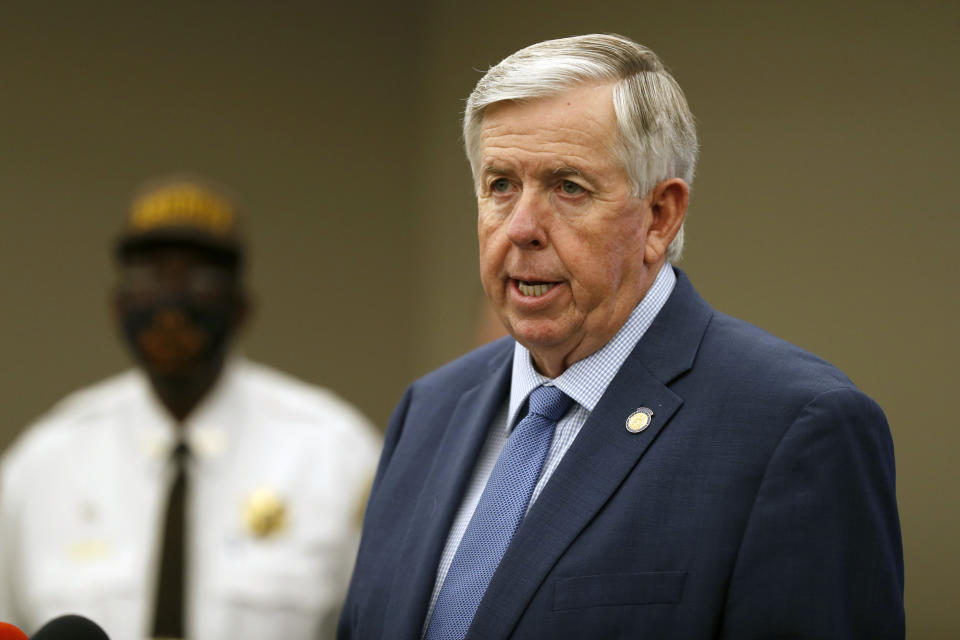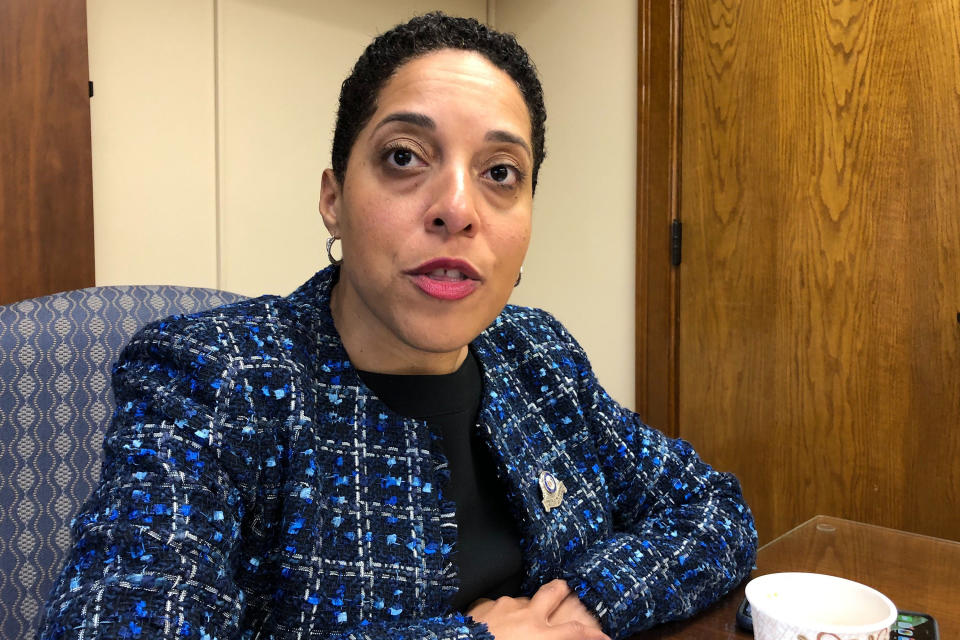Missouri bill targeting Black prosecutor spurs backlash
COLUMBIA, Mo. (AP) — Missouri Gov. Mike Parson’s contested call to give the attorney general the power to prosecute homicides in St. Louis has spurred backlash and led state lawmakers to delay work on crime legislation he wants.
Parson on Monday asked lawmakers working on sweeping crime bill to give Attorney General Eric Schmitt's office that authority — a move that was widely seen as a criticism of Democrat Kim Gardner, the city's first Black prosecutor who supports greater police accountability and using diversion programs instead of incarceration.
Parson and Schmitt, both Republicans, have insisted the goal is to help fight a surge in violent crime in the state's larger cities.
Gardner on Wednesday said prosecutors' choices are "challenged every step of the way when African American female prosecutors come into office.”
Republican state Sen. Bob Onder last week called Gardner incompetent and floated the idea of giving the governor the authority to oust prosecutors for reasons including incompetence.
Other Black female prosecutors elsewhere in the U.S. have faced similar criticism.
Florida's former Republican Gov. Rick Scott reassigned death penalty cases from Florida's first Black state attorney, Aramis Ayala, when she announced in early 2017 that her office would no longer seek the death penalty because of its cost and failure to deter crime. And Baltimore's police union leader has repeatedly criticized the city's top prosecutor, Marilyn Mosby, who attracted national attention when she charged six officers over the 2015 death of 25-year-old Freddie Gray. Three officers were acquitted and Mosby dropped the remaining cases.
Gardner most recently faced criticism for charging a white couple, Mark and Patricia McCloskey, with felony unlawful use of a weapon after they pointed guns at racial inequality protesters marching past their home.
Parson has said he spoke with President Donald Trump about Gardner’s decision and told the president that it’s difficult to remove an elected official from office in Missouri, though he didn’t say if Trump had asked if Gardner could be removed.
Parson's comments this week came just days after she easily won the Democratic primary for her office. Gardner is heavily favored to win the general election in November in the overwhelmingly Democratic city.
Shaun King, a Black Lives Matter activist and co-founder of the criminal justice reform organization Grassroots Law Project, said Republicans are trying to undermine Gardner.
“They want to undo the electoral outcome because their chosen law enforcement candidate was not elected by the people," King said in a statement.
Parson has said his proposal is “not about taking away authority” but about fighting crime.
But his request has stalled work on the sweeping crime bill that he initially called lawmakers back to the Capitol to work on. Among other things, Parson wants to strengthen witness protection programs, ramp up penalties for giving guns to minors and require judges to consider trying some children as adults for weapons crimes.
A broad bill that included Parson's original requests passed the state Senate last week, and a House committee was holding a public hearing the day the governor added the prosecutorial change to his legislative wishlist.
In response, House Republicans stopped work on the sweeping crime bill and plan to break up the various provisions into separate bills.
“Given the fact the governor expanded the call as one of our committees was considering the bill he originally proposed, we think it’s important to take a step back and give additional thought and attention to each part of the plan," Republican House leaders said in a joint statement.
That will give lawmakers the choice to vote down some of Parson's more contested ideas.
Parson spokeswoman Kelli Jones said the governor and his administration believe in the legislative process “but also believe time is of the essence as homicides continue to increase across the state.”
___
Associated Press writer Aaron Morrison contributed to this report from New York.



